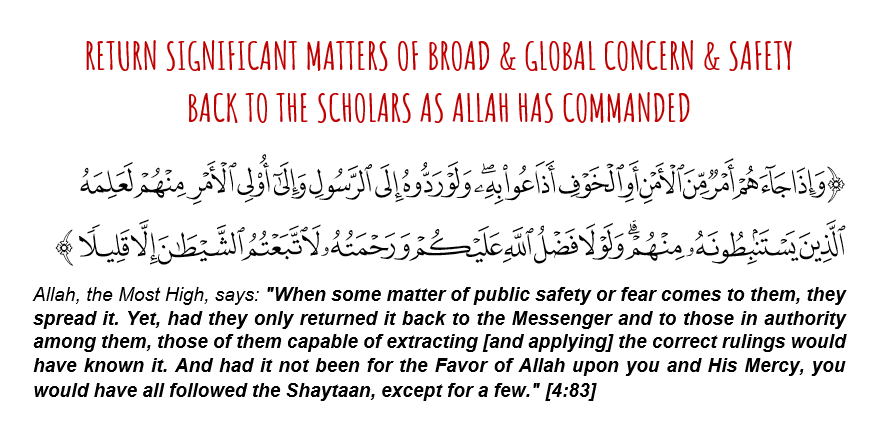In the Name of Allah, the Most Gracious, the Ever Merciful…
The following is a compilation of very important resources from the Salafi scholars living through this pandemic, aware of its specific details, in order to return matters of global emergencies to those qualified to speak about them for proper determination, as Allah has commanded:

One of the most important and relevant resources on the topic for us in the West is this: Five questions from Ustaadh Moosaa Richardson posed to the senior authority of Fatwaa (Religious Verdicts) in this time, the Mufti Shaykh ‘Abdul-‘Azeez Aal Shaykh (may Allah preserve him):
-
How do we know exactly what nawaazil (pending issues in need of verdicts) are…?
-
What should be done if we enter a mosque these days -the days of the Coronavirus-, and we find that the people of this masjid are not distancing themselves from one another, nor are they implementing the safety protocols of the authorities, in non-Muslim lands…?
-
In the West, we have some doctors among the Muslims, people of Sunnah and [good practice of] Religion, people known for their love of Islamic knowledge and its dissemination. However, in these days specifically, they oppose the official Health agencies, saying that there is no need for the well-known protocols of safety which those officials instruct the people to observe…?
-
What should be our stance on those who talk about So-and-So, the government official, in their private gatherings, actually naming one of the authorities in the land of the Two Sacred Mosques, saying that he is causing corruption in the land, because he closes mosques and puts restrictive limits on those who come for Hajj and ‘Umrah, requiring them to follow harsh safety restrictions, which leads to the ruin of the sacred places [of worship]?
-
What is our stance on those who say that the governmental leaders in the Land of Tawheed have made decisions during this pandemic based on blindly following the West, without consulting the people of knowledge?
